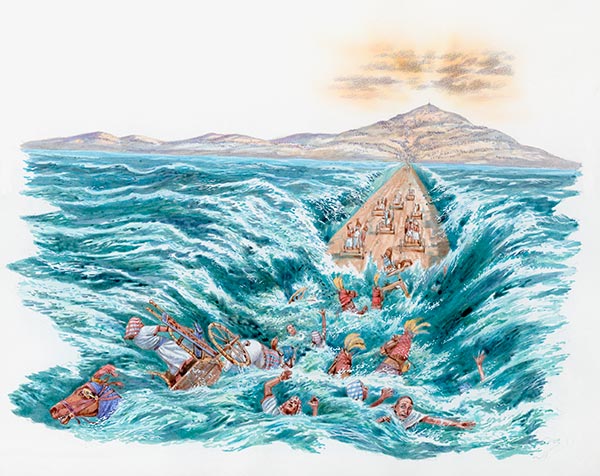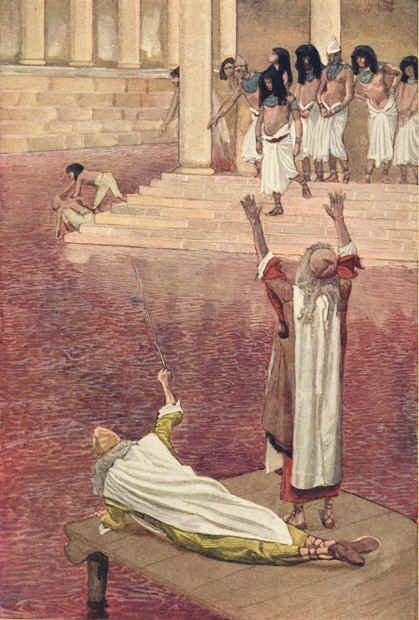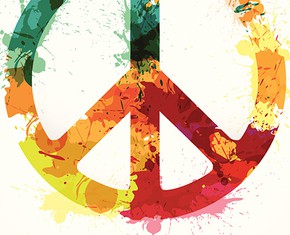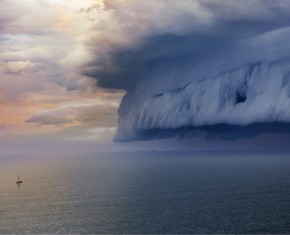The views expressed in our content reflect individual perspectives and do not represent the authoritative views of the Baha'i Faith.
Apparently, believers of most religions resort to miracles as a proof that the one they choose to follow was chosen by God. Only a Chosen One of God, the argument goes, could break the laws of nature that bind the rest of us. This argument, however, is fraught with difficulties, and obscures the greater miracle God has shown everyone.
Consider first the miracle stories in the Hebrew Bible that began with Moses. Before the court of Pharaoh, his priests worked their miracles and Moses worked his. Both turned their staffs into snakes, and both turned the Nile into blood, leaving us to consider, if we were inclined to think of these stories as literal, just how widespread the ability to turn staffs into snakes and rivers into blood was, and what the benefit of such things would be?
Then there were the plagues that Moses called down on the Egyptians — surely only a Prophet of God could have done that. Scholars wonder if these “plagues” were just the natural disasters that regularly occurred on the Nile. Floods cause an abundance of frogs, maggots grow on the decay of frogs, flies follow from maggots, diseases that infect livestock comes from flies, and boils come from eating contaminated or sick livestock. Hailstorms, locusts, dust storms, and even epidemics that strike the young, all occurred regularly and in ancient times would have been viewed as plagues from the gods.
But what about the greatest Old Testament miracle of all: Moses parting the Red Sea to help his people escape? Surely all doubts about the greatness of Moses are stilled in the face of that fantastic feat. But there is no Egyptian record of such a thing, and in Chaim Potok’s History of the Jews he notes that a word that referred to “reeds” in the Bible was errantly transcribed “red” (p.69). Moses may have led his people across a “sea” of marshland reeds or across a narrow reedcovered strip of land that separates the Mediterranean Sea from a lake (such as near Lake Manzala or Lake Bardawil). Chariots, of course, would get swallowed in this sea of reeds, and the reeds would further serve to hide the Jews as they fled.
In the Baha’i teachings, which say that science and religion must agree, miracles may have meaning for those who are there to witness them – but typically they symbolize a greater meaning. Abdu’l-Baha reached similar conclusions about the events the Bible describes:
The crossing of the Red Sea has a spiritual meaning. It was a spiritual journey, through and above the sea of corruption and iniquity of the Pharaoh and his people, or army. By the help of God through Moses, the Israelites were able to cross this sea safely and reach the Promised Land (spiritual state) while Pharaoh and his people were drowned in their own corruption. The Egyptian History recorded even trifling events. Had such a wonderful thing happened as the partings of the physical sea it would also have been recorded. – Daily Lessons Received at ’Akka, p. 45.
 Another reason to consider that Moses did not part the Red Sea was the response of his followers: The Bible reports that they doubted Moses even after the Red Sea incident. Would anyone ever doubt someone that had literally parted the Red Sea?
Another reason to consider that Moses did not part the Red Sea was the response of his followers: The Bible reports that they doubted Moses even after the Red Sea incident. Would anyone ever doubt someone that had literally parted the Red Sea?
These kinds of miraculous appearances and disappearances, the healing of the desperately ill and physically impossible feats fill the religious stories of old. But in a scientific age, when most magic, miracles and marvels generally suffer the fate of the eventually debunked, we have come to distrust the old miracle stories; and thereby distrust religion itself. So let’s explore some of those stories and try to understand them from a scientific and symbolic perspective, and see if that approach changes the way we think of the myths of faith.
You May Also Like
Comments


















The miracle mentioned in the writings of Bahaullah is the miracle of spirit, mind, emotion. A deep heavy cry may itself at times be the greatest of all miracles, while at other times the greatest miracle is a surprising laughter, as in the laughter of Badi while under chains, torture, and immense pain. And other times the laughter of joy coincides with a miracle.